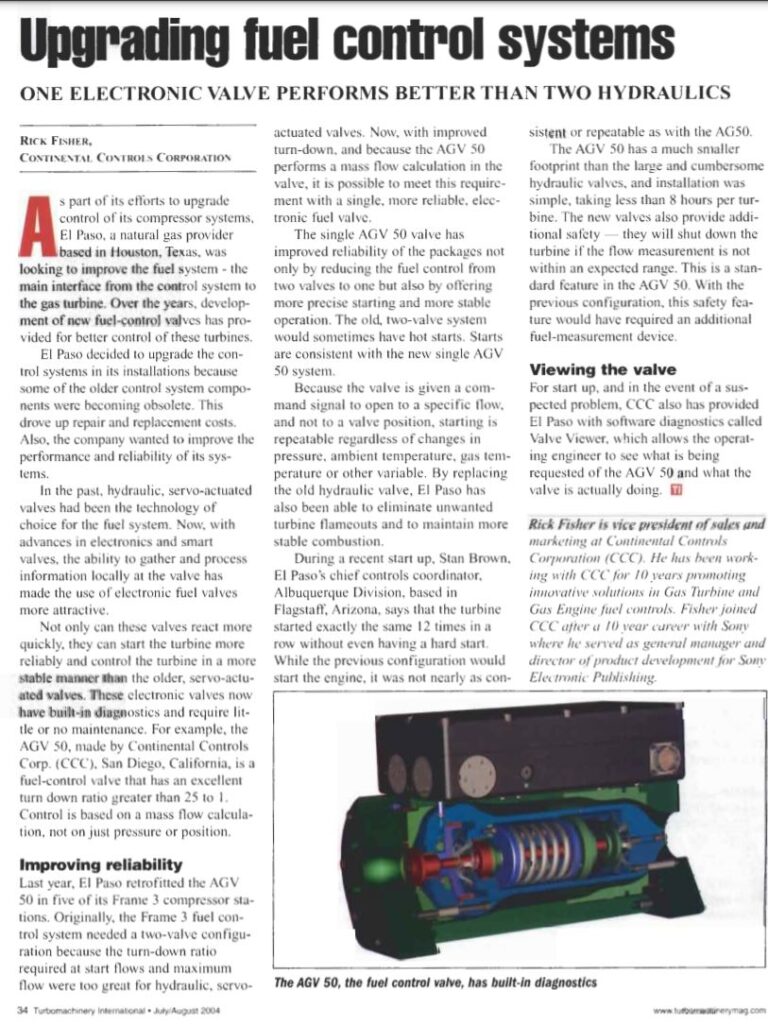El Paso, a Houston-based natural gas provider, sought to enhance its operations by upgrading the fuel system, a vital link between the control system and gas turbine. This decision was motivated by the rising costs of maintaining outdated control components and the desire to boost system performance and reliability. Historically, hydraulic servo-actuated valves were the norm, but the emergence of electronic valves capable of local data processing brought about a shift. These advanced valves promise quicker responses, more reliable turbine startups, and improved operational stability compared to older hydraulic valves. One such example is Continental Controls Corp.'s AGV 50, which employs a mass flow-focused control strategy for precision and an impressive turn-down ratio exceeding 25 to 1.
El Paso embarked on retrofitting five Frame 3 compressor stations with AGV 50 valves, replacing the previous hydraulic two-valve configuration. The AGV 50's enhanced turn-down capability and integration of mass flow calculations in the valve led to a more reliable single-valve setup, elevating overall reliability and turbine stability. The AGV 50's command signal, centered on flow rather than position, enabled consistent startups despite varying pressures, temperatures, and other variables.
Stan Brown, El Paso's Chief Controls Coordinator, highlighted the AGV 50 system's seamless performance, with 12 consecutive turbine starts showcasing its reliability compared to the previous setup. The compact size of the AGV 50 facilitated easy installation, with each turbine requiring under 8 hours for setup. The valves also feature built-in safety mechanisms, triggering turbine shutdowns if flow measurements deviate from the expected range. Continental Controls Corp. further aided troubleshooting efforts by providing El Paso with diagnostic software called Valve Viewer. This tool empowers engineers to monitor prescribed actions and the valve's responses, offering valuable insights during startup and problem-solving procedures.

